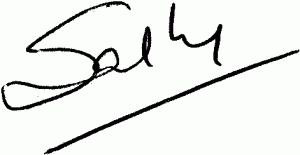“Genetics and epigenetics are important. Decisions – they are more important.” – HaleyBop
I’ve been pondering recently about the phrase “the apple never falls far from the tree”. We tend to have a lot in common with our parents of course – they are among the first to teach us how to be people! Assuming that the apple never falls far though isn’t always helpful. Sometimes it does fall far though – very far!
This assumption we often make can have a disempowering on children – and on ourselves. By that I mean we can often use it to excuse/explain a behaviour rather than assigning responsibility/praise to the person who is doing the behaving. And so a child’s talent might be dismissed as ‘belonging’ really to his parent, and we might even compare and contrast the two.
Or we can place expectations that a child, or that we, might perform as well as their parent academically, creatively or at sport.
Or we can place expectations that the child will behave badly – and that label can in and of itself influence behaviour or the perception of it.
Another fallout from the assumption, and what moved me to share my musings, is this: parents can unwittingly take responsibility for childrens’ poor behaviour. The agonising questions like ‘Where did I go wrong, did he/she get it from my ‘side’?” – have you ever heard yourself asking these? Most parents I know socially and professionally have.
Here’s the thing though – when we do this, particularly when the child in question is an adult or nearly – we are absolving them of their poor choices. We are taking the responsibility ourselves for their behaviour. Ultimately this means we enable the poor behaviour to continue while increasing our (undeserved) parental shame.
I see this arising for clients in therapy a lot. I’m aware that adults are responsible for teaching right from wrong, boundaries, respect. Parenting is a job that is bursting with responsibility. But for a child to mature fully we must also teach the boundary of where they end and others begin. The boundary that says – “You chose this behaviour and now there are consequences that are yours to live with”.
I am not responsible for any adult’s behaviour. And you are not either. Not even your child’s.
The first line above is a comment that someone posted in response to another blog post I wrote about this last week – feel free to take a gander. And please do remember that there is no such thing as a perfect parent!
Warmly,


